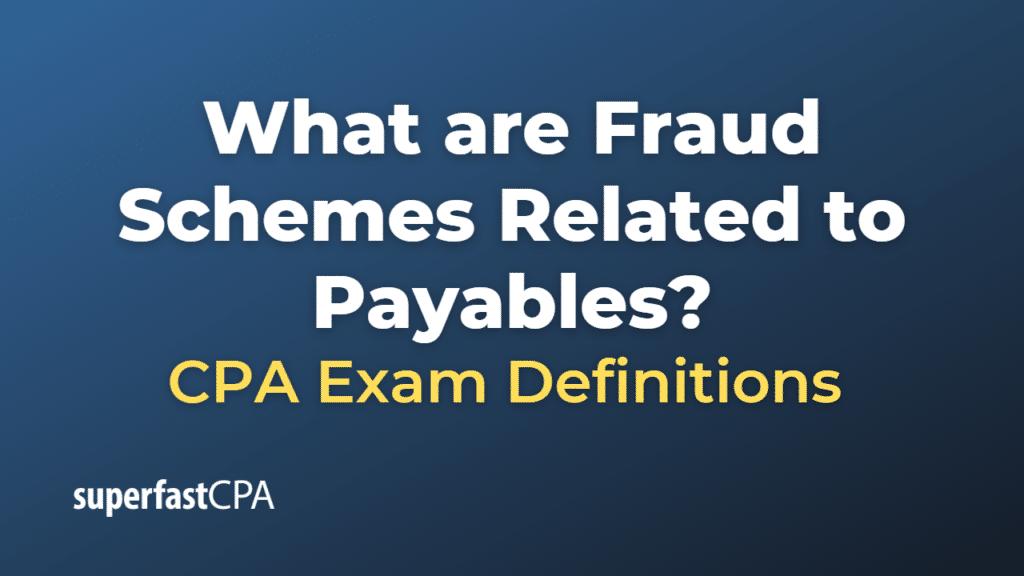Fraud Schemes Related to Payables
Payables fraud involves schemes that manipulate the accounts payable process of a business, typically for the personal benefit of an employee or group of employees. These schemes often take advantage of weak internal controls. Here are some common types of payables fraud:
- Duplicate Payments: This scheme involves an employee intentionally processing a payment more than once, with the second payment being diverted to a bank account they control.
- Ghost Employees: In this scheme, an employee adds a non-existent (or “ghost”) employee to the company’s payroll. The fraudster then collects the salary or wages of the ghost employee.
- Shell Company Schemes: An employee sets up a fictitious (or “shell”) company and then creates invoices from that company for goods or services not actually provided. The invoices are paid by the victim company, with the funds going to the shell company controlled by the employee.
- Personal Purchases: An employee makes personal purchases using company funds. This can occur through the misuse of company credit cards or by manipulating the company’s purchase order system.
- Check Tampering: An employee alters a check after it has been issued, either changing the payee to themselves or increasing the amount.
- Kickback Schemes: This involves an employee conspiring with a supplier. The employee agrees to approve invoices from the supplier for inflated prices or for goods and services not provided, and the supplier kicks back a portion of the proceeds to the employee.
Preventing payables fraud generally involves implementing strong internal controls, segregating duties so that no single individual has control over the entire payables process, regularly auditing payables transactions, and creating a culture of ethics and integrity in the organization.
Example of Fraud Schemes Related to Payables
Here are examples of payables fraud schemes:
- Duplicate Payments: An accounts payable clerk at a business intentionally processes a payment to a vendor twice. The second payment, instead of being returned to the company or applied as a credit, is intercepted by the clerk and diverted to a personal account.
- Ghost Employees: A payroll administrator at a large company adds a “ghost” employee to the payroll. This ghost employee doesn’t exist, but the administrator processes a paycheck for them every pay period and has it deposited into a bank account controlled by the administrator.
- Shell Company Schemes: An employee in the purchasing department sets up a fictitious company and submits invoices from this shell company for nonexistent supplies or services. The company pays the invoices, and the money goes into a bank account controlled by the employee.
- Personal Purchases: A facilities manager at a company uses the company’s funds to buy personal items. They submit a purchase requisition for office supplies, but when they make the purchase, they include personal items and have the company pay for the full amount.
- Check Tampering: A bookkeeper at a company intercepts a check made out to a vendor. They use chemicals or other methods to erase the vendor’s name and replace it with their own, then cash the check.
- Kickback Schemes: An accounts payable manager colludes with a vendor. The manager approves inflated invoices from the vendor, and in return, the vendor pays the manager a portion of the extra money.
These examples illustrate how an employee can exploit weak controls in a company’s payables process to commit fraud. Effective prevention strategies include implementing strong controls, segregating duties, performing regular audits, and fostering a culture of ethics and honesty.













